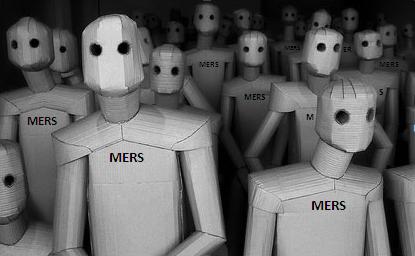Fresh from Matt Weidner’s Blog
UNITED STATES BANKRUPTCY COURT
Eastern District of California
Honorable Ronald H. Sargis
Bankruptcy Judge
Sacramento California
May 20, 2010
MERS AND CITIBANK ARE NOT THE REAL PARTIES IN INTEREST
Under California law, to perfect the transfer of mortgage paper as collateral the owner should physically deliver the note to the transferee. Bear v. Golden Plan of California, Inc. 829 F.2d 705, 709 (9th Cir. 1986) . Without physical transfer, the sale of the note could be invalid as a fraudulent conveyance, Cal. Civ. Code 3440, or as unperfected, Cal. Com. Code 9313-9314, See Roger Bernhardt, California Mortgage and Deed of Trusts, and Foreclosure Litigation 1.26 (4th ed. 2009) . The note here specificlly indentified the party to whom it was payable, Bayrock Mortgage Corporation, and the note therefore cannot be transferred unless the note is endorsed. See Cal. Com. Code 3109, 3201, 3203, 3204. The attachments to the claim do not establish that Bayrock Mortgage Corporation endorsed and sold the note to any other party.
TRANSFER OF AN INTEREST IN THE DEED OF TRUST ALONE IS VOID
MERS acted only as a “nominee” for Bayrock Mortgage under the Deed of Trust. Since no evidence has been offered that the promissory note has been transferred, MERS could only transfer what ever interest it had in the Deed of Trust. However, the promissory note and the deed of trust are inseparable. “The note and the mortgage are inseparable; the formal as essential, the later as an incident. An assignment of the latter alone is a nullity.” Carpenter v. Longan, 83 U.S. 217, 274, (1872); accordingly Henley v Hotaling, 41 Cal. Civ. Code 2936. Therefore if one party receives the note and an another receives the deed of trust, the holder of the note prevails regardless of the order in which the interests were transferred. Adler v. Sargent, 109 Cal. 42, 49-50 (1895).
Further, several courts have acknowledged that MERS is not the owner of the underlying note and therefore could not transfer the note, the benificial interest in the deed of trust, or foreclose upon the property secured by the deed. See in re Foreclosure Cases, 521 F. Supp. 2d 650, 653 (S.D. Oh. 2007) ; In re Vargas, 396 B.R. 511, 520 (Bankr. C.D. Cal. 2008) ; Landmark Nat’l Bank v. Kelser, 216 p.3d 158 (Kan. 2009) ; Lasalle Bank v. Lamy, 824 N.Y.S2d 769 (N.Y. Sup. Ct. 2006) . Since no evedence of MERS’ ownership of the underlying note has been offered, and other courts have concluded that MERS does not own the underlying notes, this court is convinced that MERS had no interest it could transfer to Citibank.
Since MERS did not own the underlying note, it could not transfer the beneficial interest of the deed of trust to another. Any attempt to transfer the beneficial interest of a trust deed with out ownership of the underlying note is void under California law. Therefore Citibank has not established that it is entitled to assert a claim in this case.
See the full order below…



No Comment